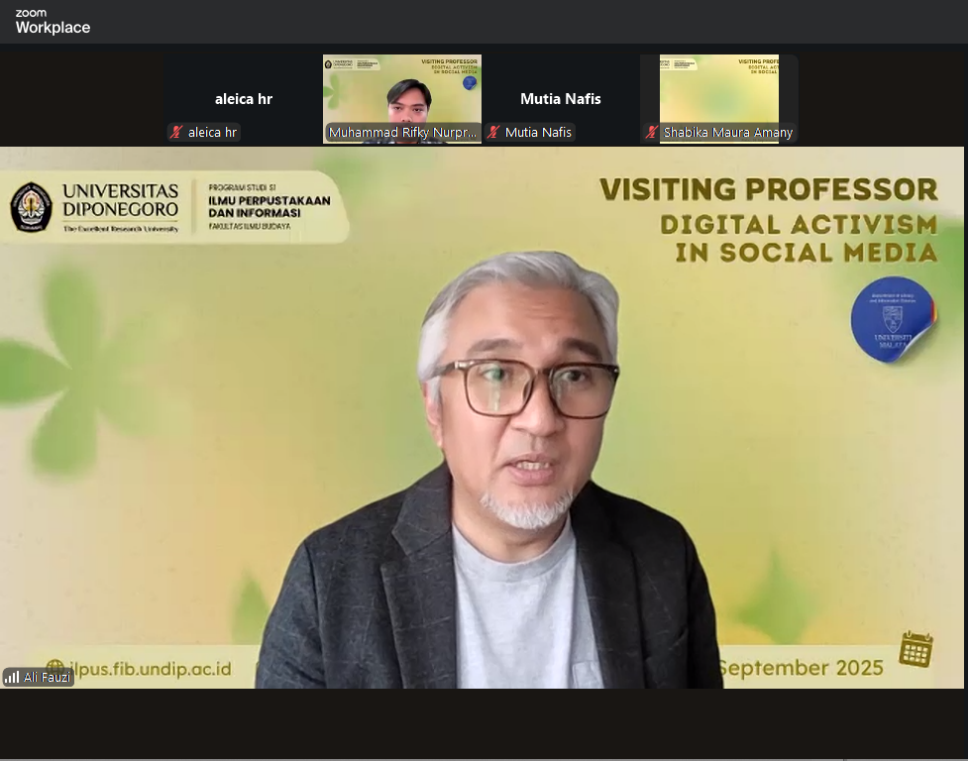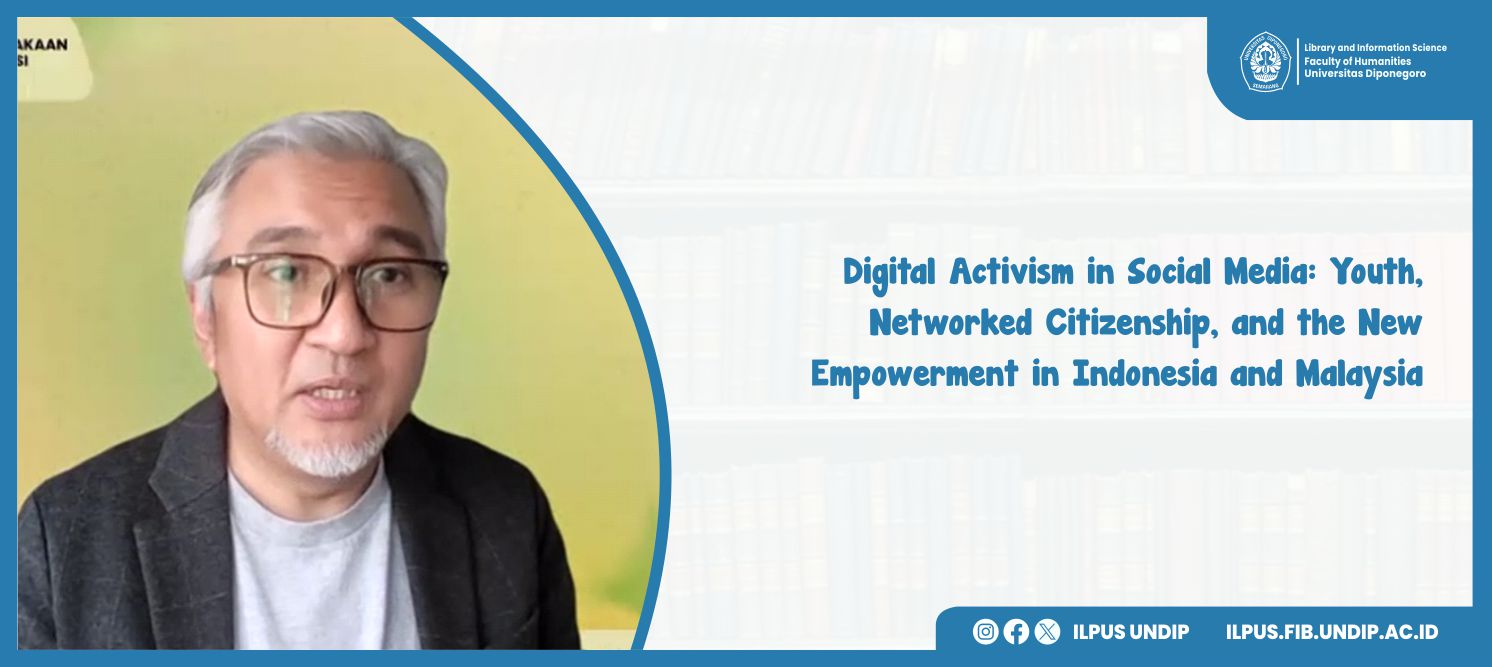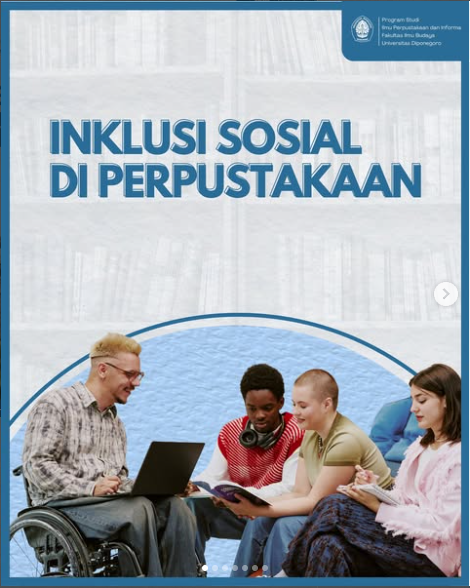Semarang, 24 September 2025 – The Library and Information Science Study Program, Faculty of Humanities, Diponegoro University, held a public lecture titled “Digital Activism in Social Media: Youth, Networked Citizenship, and the New Empowerment in Indonesia and Malaysia.” The event featured Dr. Ali Fauzi from the University of Malaya and was enthusiastically attended by third- and fifth-semester students of Library and Information Science.

In his presentation, Dr. Ali Fauzi highlighted the phenomenon of Southeast Asian youth living in an era of deep digital immersion. Internet penetration in Malaysia has reached 97.4%, while in Indonesia 93.5% of teenagers are active on social media. With an average of eight hours of daily internet use, there has been a major shift in how young people participate in social, economic, and even political life. According to him, this condition opens new spaces for expression, economic opportunities, and civic participation, while also presenting risks such as disinformation, unequal access, and threats to mental health.

Dr. Ali emphasized that while young people are fluent in using digital devices, they do not always have critical skills in evaluating information. He provided the example of the “digital hustle,” which shows how young people are able to create their own job opportunities through social media, e-commerce, and content creation. However, threats such as cyberbullying, excessive communication, and the digital divide remain real challenges that must be addressed collectively.

The public lecture also underlined how digital spaces are not only arenas of entertainment, but also platforms for building critical awareness among youth. Social media, online forums, and other digital ecosystems allow students and young people to develop social consciousness, expand cross-border networks, and construct alternative discourses beyond mainstream channels. Dr. Ali stressed that strong digital literacy skills will be an important asset for them—not merely to become passive users, but actors who can harness technology for more inclusive and just social change.

Amid these developments, Dr. Ali underscored the importance of transforming connectivity into capability. Critical digital literacy education needs to be integrated across university curricula, universities must become hubs of technology-based social innovation, and the state must protect citizens’ digital rights. He concluded the lecture with the message that youth are not passive victims, but the most powerful agents of change in society. However, their empowerment remains fragile and contested, requiring robust ecosystem support so that the digital generation can become architects of a shared future.

The event ran smoothly and ended with an engaging Q&A session, showing the participants’ enthusiasm in exploring issues related to digital literacy, citizenship, and democracy in the digital age.




